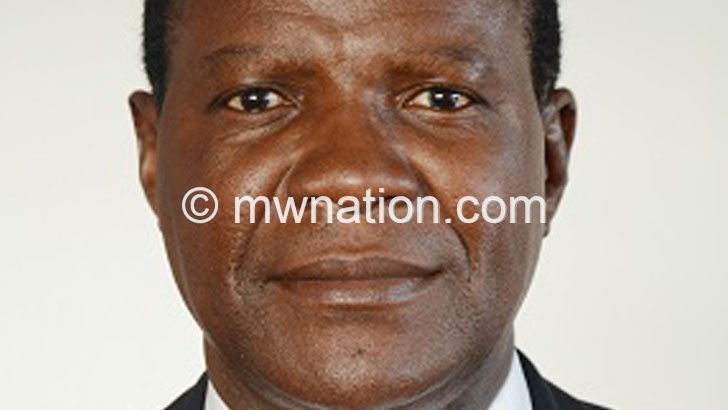Rising debt worries MCP, UDF
Malawi Congress Party (MCP) and United Democratic Front (UDF) yesterday expressed concern over the continued rise in public debt which they said is stifling private sector investment and negatively impacting the economy.
The two official opposition parties in Parliament were responding to the proposed 2019/20 National Budget which Minister of Finance, Economic Planning and Development Joseph Mwananvekha tabled on September 9. They also decried soaring interest rate repayments on the public debt stock.

Interest repayments in the 2019/20 fiscal plan are projected at K243.9 billion or 3.9 percent of the country’s total wealth as measured by gross domestic product (GDP).
The interest repayment represents an 8.8 percent increase on the amount paid last financial year, 2018/19, for a country deemed to be at ‘high overall risk of debt distress’ by both the International Monetary Fund (IMF) and the World Bank.
Setting the ball rolling in his party’s reaction to the proposed fiscal plan, MCP spokesperson on finance Collins Kajawa said his party regrets the tendency by Treasury of continuing to spend “as if everything is normal even when revenues show an early and clear trajectory that they will fall short of projected levels”.
He said it was worrying to note that the country’s debt has more than doubled from just over 30 percent of GDP in 2009 to the current 62 percent of GDP.
Kajawa is vindicated by a recent World Bank preliminary report which places Malawi as one of the six sub-Saharan Africa countries whose debt to GDP ratio has more than doubled in the past nine years.
Specifically, the report titled Debt, Growth and Stability in Africa: Speculative Calculations and Policy’ released in June this year shows that Malawi’s public debt as a percentage of GDP rose from 29.6 percent in 2010 to 61.3 percent in 2018, when real GDP growth rate only averaged 3.2 percent.
Economists contend that debt to GDP ratio has a maximum threshold of 50 percent, with 20 percent being domestic debt while 30 percent being foreign or external debt.
Reserve Bank of Malawi (RBM) figures put public debt—one of the economy’s key macroeconomic indicators—at K3.3 trillion, which is almost double the K1.7 trillion 2019/20 proposed budget.
In his submission, Kajawa said: “Our debt composition has progressively shifted from external to the more expensive domestic borrowing due to, among others, sustained large fiscal deficits and careless securitisation of domestic arrears.”
Weighing in on the same, UDF spokesperson on finance Ismail Rizzq Mkumba reminded fellow legislators on the need to strictly scrutinise future government borrowings in order to avoid burdening future generations.
He said: “This needs to be urgently addressed and we need to guard against future borrowings, especially domestic borrowings that are stifling out the private sector.”
On one hand, the two parties were split on government’s plans to allocate K1.6 billion for the construction of two stadia for privately-owned football clubs, Mighty Be Forward Wanderers and Nyasa Big Bullets.
While MCP warned government to refrain from using football teams to gain political mileage, UDF said government could do better if it adds more money to the project than the allocated K1.6 billion.
Kajawa said while football is supposed to be a unifying factor among different people, MCP finds it strange for government to allocate taxpayers money for the two big teams. He said MCP suspects that government wants to gain political mileage with the projects.
“The issue of budgetary allocation towards the construction of stadia for our two most popular teams in the country has turned out to be a divisive issue among Malawians. Let us refrain from using football as a pony to satisfy our political egos,” he said.
Interestingly, Mkumba, while welcoming the idea to construct the two stadiums, said UDF is calling for Treasury to allocate more money towards the project as the allocated K1.6 billion amount “is not enough.”
The two parties also differed on the Farm Input Subsidy Programme (Fisp) with UDF saying the programme is still important to the country’s economy and MCP stating that there is need to introduce universal subsidy.
However, both MCP and UDF were in agreement on several issues, including the need to ensure financial prudence by Treasury and government ministries, departments and agencies (MDAs). They also shared the belief that political tension in the aftermath of the May 21 2019 Tripartite Elections has not only affected local businesses, but also the functioning of government.
The two parties have also commended government for a provision to increase civil servants salary by between 10 and 15 percent, and ensuring more support to persons with albinism and other disabilities.
Both MCP and UDF have also urged government to remove the proposed one percent withholding tax on non-bank mobile money transactions based on transaction amount, saying the tax is not only retrogressive but militates against the country’s financial inclusion agenda.
Meanwhile, economics professor at Chancellor College Ben Kaluwa yesterday backed MCP stance on the proposed allocation to the stadiums, arguing it is not logical for government to pump in money to clubs who have own official sponsors.
He also faulted the proposal to impose a one percent tax on mobile money transactions which he said is against the preaching about financial inclusion by the same government. On his part, Economics Association of Malawi (Ecama) president Chikumbutso Kalilombe declined to comment on the proposed allocation towards the stadium projects, but said the association wants rational expenditure in the proposed budget which should be thoroughly scrutinised.





